If you click on a link and make a purchase we may receive a small commission. Read our editorial policy.
Anime in movie theaters: Crunchyroll executive Mitchel Berger explains how Dragon Ball Super and other anime are making it big on the big screen
The Senior Vice President of Global Commerce talks the wide distribution of anime theatrical content, the success of Dragon Ball Super: Superhero and more

Demon Slayer- Kimetsu no Yaiba - The Movie: Mugen Train . JUJUTSU KAISEN 0. Your Name. Promare. Dragon Ball Super: Super Hero. These are just some of the titles that have graced the big screen, giving anime fans the opportunity to experience what they enjoy most with others who share the same interests. Who love the same story and characters. Who laugh at the same jokes. Who are blown away by detailed animation. Myself included.
As you can imagine, there is a lot of work that goes into the distribution of movies of this scale. Especially ones that have a large global release with many different language dubs, such as the latest and highly anticipated anime theatrical release for this year, Dragon Ball Super: Super Hero. After watching the movie in theaters, I had the opportunity to speak with Crunchyroll's senior VP of global commerce Mitchel Berger, who managed the distribution of some of the highest grossing anime releases (including Super Hero), to discuss the theatrical experience process of anime films.
Popverse: Mitchel Can you tell us a little bit more about your background with Crunchyroll and how long you've been working in commerce?
Mitchel Berger: Sure. I started with Funimation. I've been with Funimation/Crunchyroll, it'll be eight years, I think next month. I started with Funimation, have been there through the acquisition by Sony, through the merger with Crunchyroll. Before that, I spent 21 years at Universal Studios. My entire career has been in the entertainment business, thankfully, which is great because it's a phenomenal business and I wouldn't want to have a real job.
I get to have fun every day. You know, almost 30 years now of home entertainment and theatrical consumer products, content licensing and the last eight of it really focused on anime here at Crunchyroll.
Sometimes when people think of the word commerce, they might think hard sales and numbers and math. Doing commerce within entertainment, how do you think there's a level of creativity to that?
It's funny and you'll appreciate this. The reason I love what I do, and I've been in sales for a long time, I've been in commerce, it really is about telling a story. It's really about when you're talking to a client, when you're talking to someone to put together a program for fans, or a marketing program, or whatever, what you're really doing is you're telling a story and you're trying to help connect them emotionally with what's going on.
So, for me personally, I love to perform. I'm a musician. I love musical theater. I would have loved to have been a performing artist. I just wasn't talented enough. But in my job, in commercial work, whether it's pitching to a client, or doing a recap to stakeholders, that's a performance for me. That's where it's like being on stage.
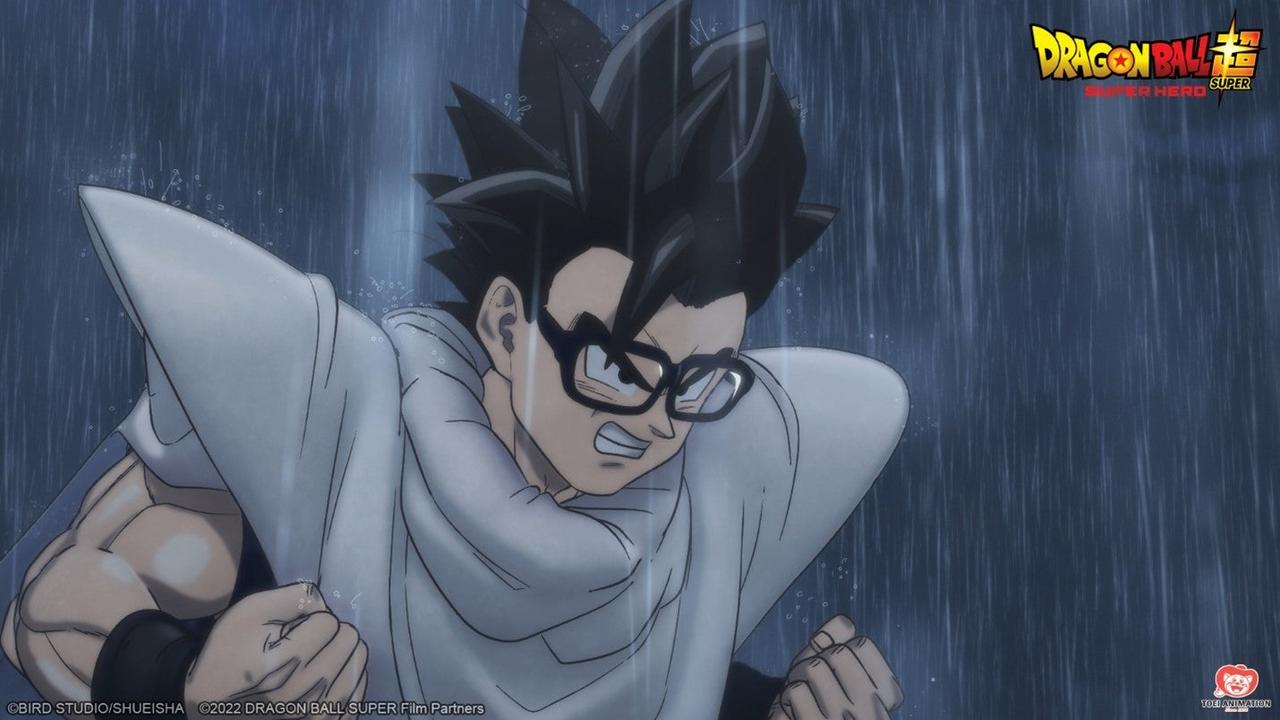
You get to prepare. You're making emotional connection, you're talking, you're getting feedback from people live. And that for me personally is the creative side of it, because you're always looking for that connection, telling the story, and yes, you're using numbers and you're using some hard facts, but it's not dry. It doesn't have to be boring. You can make it fun because what we sell and distribute is emotional product.
It's all entertainment product. So, you've always got to bring that end to the discussion along with the numbers and the things like that.
Over the years, we have been seeing a lot more anime titles getting theatrical releases which is so exciting! We recently had Demon Slayer: Kimetsu no Yaiba – The Movie: Mugen Train, Jujutsu Kaisen 0: The Movie, in which I know you also played a part in distributing those two. Specifically, can you speak on the process of getting a film distributed, from the very first step of the launch to the very last step when it is on a theater screen?
Sure. It all starts with the creators and the content. I like to tell everybody, doesn't matter what we do if we don't have great content. It just doesn't matter. It all starts with our partners in Japan and the amazing creators there who create things like Demon Slayer or Jujutsu Kaisen. Once those things are created, we work really closely with the creators and licensors out of Japan, and we will work with them on acquiring the rights for territories that are available.
For Dragon Ball, we had the world excluding Japan. For Jujutsu Kaisen, I think we had the world excluding Asia. There's different territories that we work in, but we will acquire the rights to the film. We'll put together a distribution plan that looks at what's the right date to put the film in theaters, what's the right marketing program, how do we get people excited and when do we announce it? When do we do the trailer? When do we put tickets on sale? We'll put together an entire plan of getting from announcing that we've acquired the film, to those beats of letting people see a key visual or a trailer or, you know, ticket on sale date is a big point for us where people can actually start to buy tickets and set time up to go see it.
We will work internally a lot on a good number of the films that we do. We dub them in local languages, so we will get the film, read the script, translate it, hire the voice actors. Go through that process of the creative process of creating that local language dub. We work with theaters to book the dates, put them out there, and then it really is like most other theatrical films.
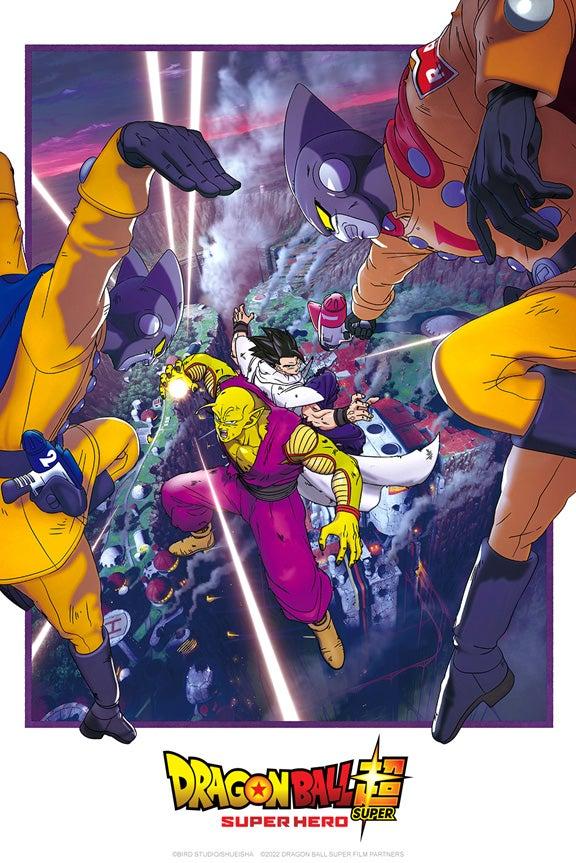
We find a good date. We booked the theaters, we have a marketing campaign that leads up to it, and then we put it on screen, and let fans come and enjoy it together.
If you can elaborate, is it your team or maybe the brand that you're representing thinking, 'Oh, this would be really good content to deliver to fans for a theatrical release' that you then reach out to the licensors and the Japanese production companies? Or is it, you have a partnership with Japanese production companies who are like, 'Hey, Crunchyroll and Funimation... How about this?'
What's interesting about the anime business these days, which has happened in the last few years, is it's really become a global business. With it originating in Japan, they're always looking at content. They're always looking at things that will work well on the big screen. And if it's going to work well theatrically, it's probably going to work well theatrically across a very wide, wide swathe of the world.
Obviously, we're giving the animators, the licensors feedback on things that work in our territory. But we really look to them on the content that they're creating, the things that make sense, the extensions of brands or new content that will originate in Japan. And then it's our job to, I think, to bring it to that audience worldwide and make sure that everyone who wants to, has a chance to experience it on the big screen.
And right now, fans are getting the chance to experience Dragon Ball Super: Super Hero, which is a really big deal for a Crunchyroll in that it was released under the Crunchyroll brand. It was distributed globally, the first Dragon Ball Super movie to do so. It's going very well. Can you talk about that journey specifically and how it differs from the previous films we talked about?
Sure. I think it's an extension. We've been on this journey at Crunchyroll where we've grown this theatrical business. What's great about this film, the two kind of firsts for us on this film as Crunchyroll, one is yes, it's the first film that Crunchyroll has distributed on a global basis outside of Japan, which is very exciting, a lot to do, a lot of countries, a lot of languages, a lot of partners.
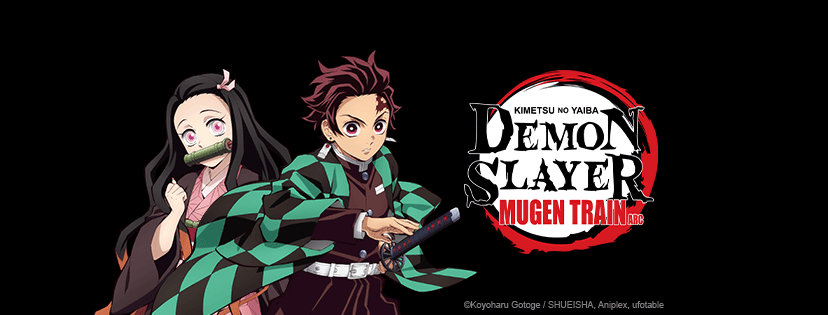
It's been a great experience for us to work with people that we've maybe not had the chance to work with before, get to know fans in territories that we may not know as well. And it's also the first film that we've distributed that widely internationally with Sony. We worked with Sony Pictures outside the US and Australia to do a lot of the distribution.
It's been a phenomenal opportunity for us as part of the Sony family to work with our colleagues in Sony theatrical and leverage their expertise against our anime expertise and really make this a special event in all of these territories. I think we're close to 100 countries now that we're going to be releasing in. It's a truly global event for us, which has been amazing because we are now a global company, and we have fans all over the world and I think it's a good starting point for better things to come in the future.
Are there any common obstacles or challenges that you tend to see come up in these processes?
I think every release has its challenges. You know, nothing ever goes smoothly and absolutely according to plan. There's always something that comes up, and it's our job to address those. There's nothing specific. I think on this film, we did deal with a wider scale, so we learned a lot about a lot of territories, like I said before, dubbing into a lot of languages, subtitling into a lot of languages.
But it's been a really good experience. We've spent so many years now building up this theatrical business and developing our capabilities that that's what my team and the marketing team and everyone else in the company is built to do. Is take that film, put it out there as wide as we can, and, at the end of the day, regardless of what happens, whatever obstacles we have, kind of, our North Star is, we want that film to be on a screen so fans can go see it with their friends and have a good experience.
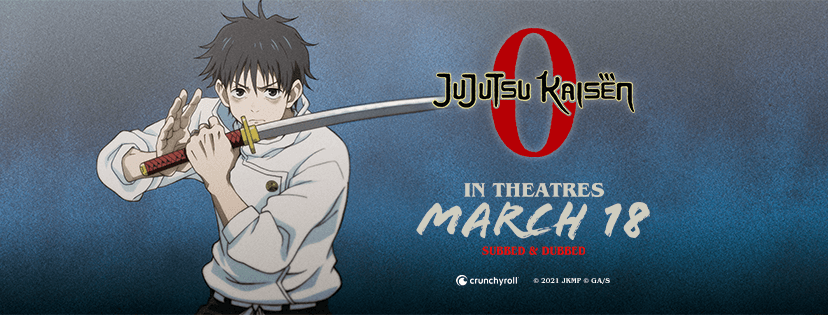
And that's all that matters at the end of the day. And what's great about Dragon Ball is it's working. Fans are going to see it. I think they love it, and the box office shows it, which has been really exciting.
I've seen it and it's very nostalgic. I love Gohan, and I love seeing him shine in this movie.
Yes, it's a good film, really good film. A great Dragon Ball, like you said, feeling film.
You mentioned the localization of a lot of different languages in all these territories. I know specifically North American audiences are used to hearing both an English dub and a Japanese dub with English subtitles. Can you talk about the process of what it's like balancing distributing two languages in North America because some fans want to see one over the other?
Sure. It's always an interesting journey because every title has its own distribution of sub versus dub. You know, a Dragon Ball probably skews a little more towards the dub, specifically theatrically. This movie very much skewed towards the dub. There are other titles that skew evenly or skew heavily towards the sub. So, what we do is we look at the source material. With something like Dragon Ball, we have a very long history, so we kind of know, but I think what's important is, as Crunchyroll now, and with the broad audience that we have for both subtitle content and dub content, what we want to make sure is that as much as possible, we give both of those fans whichever way you want to consume it, that opportunity, because if that's how you want to consume the content, we'd like to be there with that.
Now, you know, it may skew one way or another because of the fan base, but we try to make sure that we're giving those fans the opportunity to consume the content the way they want to, because that's how they know it. You know, some people they absolutely, like you said, they know Sean Schemmel’s voice as Goku and that's who Goku is to them.
For other people, they've never heard Sean. They've only heard the Japanese voice actors, and that's Dragon Ball. Those are both great experiences. We want to support both of them as much as we can, so we do make that available. We work with our exhibitors; we try to get the right balance and give them the opportunity to show it. And I think we hit it on the mark more often than not.
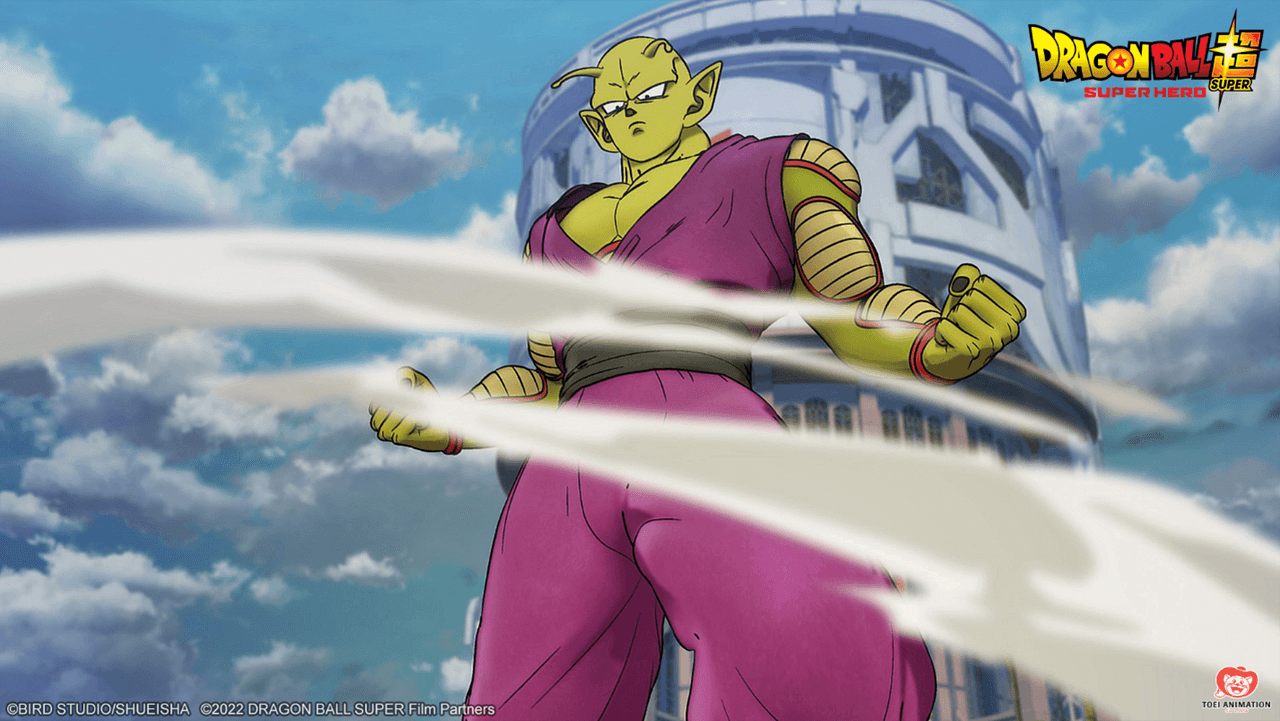
What is it, do you think, about these movies that are capturing theater audiences and they are consuming this content in the theater versus the streaming service?
I think it's two things. One, always content. The movies put out, they’re just good content that people love. So, you always start there. I think the more important thing, not the more important thing, but the other piece of that pie is, you know, we at Crunchyroll truly believe in the theatrical experience.
We think it's special to be in a theater, on a big screen and watch a film, and specifically with the anime community. It is so much about community. It's why the conventions are so amazing. It's why the community is so supportive of each other. It's why people love to share their love, their interest, and connect with people online. Sometimes they've never met in real life but have a deep connection because they share the love for this content.
The theatrical experience is that community experience there. There is no substitute for sitting in that auditorium with 300 people who will love Dragon Ball as much as you do. And it comes up on the screen and the inside joke comes up and you all laugh at it, and you all realize, we all love this thing. We're doing it together. That is special.
Streaming is absolutely amazing. Streaming is a wonderful place. It has a wonderful place for anime, and I love to consume stuff streaming and I think that people will always consume stuff that way. And there's a home on streaming for films, but as a first window and a first experience, there's just nothing like being together with the community and that togetherness and the community aspect for anime fans specifically, I think, is why theatrical works so well for anime, because it gives you a reason to get together. It's your own little mini convention for 2 hours around Dragon Ball enjoying the film.
Finally, here at Popverse we celebrate the best in TV, movies, and comics, and we want to give you an opportunity to tell us what you are currently geeking out about, and is it a show tune?
[laughs] That is such a wide question. I'm going to take the opportunity to go geeking out a non anime space because I know you have a wide group of audience listeners. So, I just finished Better Call Saul, which I absolutely love, just absolutely phenomenal. I'm in the middle of Sandman, which I'm a bit, so I'm a big comic book collector, always have been my entire life. So, I'm geeking out about Sandman. I think they've done a phenomenal job of bringing the comic book to life on screen in a very authentic way. So, there's that.
And then, you know, for me personally, I'm kind of geeking out, swerving into music a little bit, I think there's a lot of concerts coming through Dallas in the next couple of months, and I think that that business is picking back up and the in-person is better. There's three or four shows coming up that I haven't been to a concert in a while and experience live music with a crowd, you know, similar experience to go into a movie theater. I'm going to see Sammy Hagar relatively soon, which I'm excited about. But just getting back out, seeing live performances, whether it's music, whether it's theater or whatever it is, I love that because it's just special. So that's a very broad, wide non-anime answer to your question.
Read how Dragon Ball Super: Super Hero fits in the larger story of the franchise.
Follow Popverse for upcoming event coverage and news
Find out how we conduct our review by reading our review policy
Let Popverse be your tour guide through the wilderness of pop culture
Sign in and let us help you find your new favorite thing.


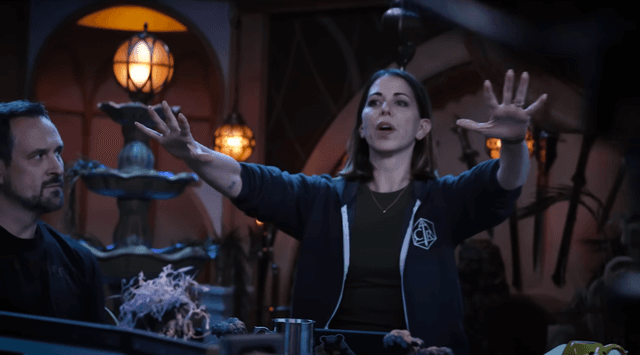













Comments
Want to join the discussion? Please activate your account first.
Visit Reedpop ID if you need to resend the confirmation email.